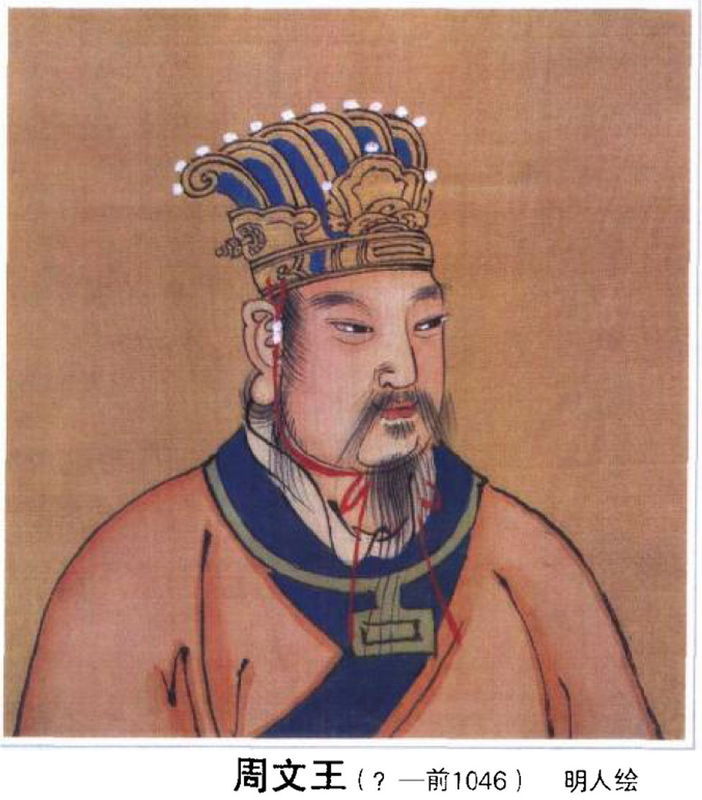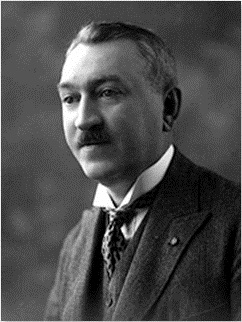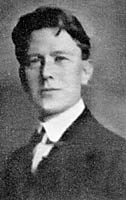|
Zhou Xiaoyan
Zhou Xiaoyan (; August 17, 1917 – March 4, 2016) was a Chinese vocal pedagogue and classical soprano. Dubbed by ''The New York Times'' as "China's First Lady of Opera", she was considered to be the first important instructor of Western opera in China. As a vocalist, she performed in theaters and concert halls across Europe in 1946–1947; earning the nickname the "Chinese Nightingale". Under the directive of Premier Zhou Enlai, she began a career teaching voice at the Shanghai Conservatory of Music in 1949. She remained an instructor at the Shanghai Conservatory for more than 65 years. Many of her students went on to highly successful international opera careers. Early life in China Born in Wuhan, Zhou's father, Zhou Cangbai (also known as Chou Tsang-po), was a wealthy banker. She was educated at a Roman Catholic school in Shanghai which exposed her to studies in Western music. She was also influenced in her youth by the White Russian and Jewish musicians who were prevalent i ... [...More Info...] [...Related Items...] OR: [Wikipedia] [Google] [Baidu] |
Zhou (surname)
Zhōu () is a Chinese surname, Chinese-language surname. In places which use the Wade–Giles romanization such as Taiwan, Zhou is usually spelled as Chou, and it may also be spelled as Chiau, Chau, Chao (surname), Chao, Chew (surname), Chew, Chow (surname), Chow, Chiu, Cho, Chu, Jhou, Jou, Djou, Jue, Jow, Joe, or Tseu, depending on regional pronunciation. In classical genealogy, the main origin of the surname 周 (Zhou) derives from the royal members of the house of Zhou, originally surnamed Ji (surname 姬), 姬 (Ji). They were the descendants of King Ping of Zhou, adopted the surname 周 (Zhou) after the fall of the Zhou dynasty. Zhou ranks as the 10th most common surname in mainland China . In 2013 it was found to be the 10th most common name, shared by 25,200,000 people or 1.900% of the population, with the province with the most being Hunan. Derived from the Zhou dynasty, it has been one of the ten list of common Chinese surnames, most common surnames in China since the Yu ... [...More Info...] [...Related Items...] OR: [Wikipedia] [Google] [Baidu] |
Nikolai Tcherepnin
Nikolai Nikolayevich Tcherepnin (Russian: Николай Николаевич Черепнин; – 26 June 1945) was a Russian composer, pianist, and conductor. He was born in Saint Petersburg and studied under Nikolai Rimsky-Korsakov at the Saint Petersburg Conservatory. He conducted for the first Paris season of Sergei Diaghilev's Ballets Russes. Life Nikolai Tcherepnin was born in 1873 to a well-known and wealthy physician of the same name. The elder Nikolai moved in elite circles of artists including Fyodor Dostoyevsky and Modest Mussorgsky. Young Nikolai's mother died when he was a baby, and when his father remarried, was replaced by an ambivalent stepmother. As a child, Nikolai's father beat him regularly and enforced a general code of strict discipline. At his father's insistence, Nikolai earned a law degree, though during this time he composed steadily. In 1895 he graduated with his degree in law from the University of Saint Petersburg. In 1898, he earned a deg ... [...More Info...] [...Related Items...] OR: [Wikipedia] [Google] [Baidu] |
Rigoletto
''Rigoletto'' is an opera in three acts by Giuseppe Verdi. The Italian libretto was written by Francesco Maria Piave based on the 1832 play '' Le roi s'amuse'' by Victor Hugo. Despite serious initial problems with the Austrian censors who had control over northern Italian theatres at the time, the opera had a triumphant premiere at La Fenice in Venice on 11 March 1851. The work, Verdi's sixteenth in the genre, is widely considered to be the first of the operatic masterpieces of Verdi's middle-to-late career. Its tragic story revolves around the licentious Duke of Mantua, his hunch-backed court jester Rigoletto, and Rigoletto's daughter Gilda. The opera's original title, ''La maledizione'' (The Curse), refers to a curse placed on both the Duke and Rigoletto by the Count Monterone, whose daughter the Duke has seduced with Rigoletto's encouragement. The curse comes to fruition when Gilda falls in love with the Duke and sacrifices her life to save him from the assassin hired by he ... [...More Info...] [...Related Items...] OR: [Wikipedia] [Google] [Baidu] |
Deng Xiaoping
Deng Xiaoping also Romanization of Chinese, romanised as Teng Hsiao-p'ing; born Xiansheng (). (22 August 190419 February 1997) was a Chinese statesman, revolutionary, and political theorist who served as the paramount leader of the People's Republic of China from 1978 to 1989. In the aftermath of Mao Zedong's Death and state funeral of Mao Zedong, death in 1976, Deng succeeded in consolidating power to lead China through a period of reform and opening up that transformed its economy into a socialist market economy. He is widely regarded as the "Architect of Modern China" for his contributions to socialism with Chinese characteristics and Deng Xiaoping Theory. Born in Sichuan, the son of landowning peasants, Deng first learned of Marxism–Leninism while studying and working abroad in France in the early 1920s through the Work-Study Movement. In France, he met future collaborators like Zhou Enlai. In 1924, he joined the Chinese Communist Party (CCP) and continued his studies in ... [...More Info...] [...Related Items...] OR: [Wikipedia] [Google] [Baidu] |
Political Offences In China
During the Maoist era in the People's Republic of China, particularly during the Anti-Rightist Movement and the Cultural Revolution, the judicial system was often used for political persecution of rivals, and penalties such as jail terms or capital punishment were largely imposed on the authority's political enemies, or anyone who attempted to challenge it. During those times, vague accusations such as "counter-revolutionary" ( zh, 反革命), capitalist roader (), "running dog of the imperialist " () could have had the accused imprisoned, or shot by firing squad. These labels fell out of use following the end of the Cultural Revolution in 1976. In more recent times, accusations such as “illegal possession of state secret” () and “inciting subversion of state power” () carry long jail terms. The vague charge of “picking quarrels and provoking trouble” has also been frequently used to detain human rights activists. Former (1949-1990) Rightist "Rightists" officially re ... [...More Info...] [...Related Items...] OR: [Wikipedia] [Google] [Baidu] |
Cultural Revolution
The Cultural Revolution, formally known as the Great Proletarian Cultural Revolution, was a Social movement, sociopolitical movement in the China, People's Republic of China (PRC). It was launched by Mao Zedong in 1966 and lasted until his death in 1976. Its stated goal was to preserve Ideology of the Chinese Communist Party, Chinese socialism by purging remnants of Capitalism, capitalist and Four Olds, traditional elements from Chinese culture, Chinese society. In May 1966, with the help of the Cultural Revolution Group, Mao launched the Revolution and said that Bourgeoisie, bourgeois elements had infiltrated the government and society with the aim of restoring capitalism. Mao called on young people to Bombard the Headquarters, bombard the headquarters, and proclaimed that "to rebel is justified". Mass upheaval began in Beijing with Red August in 1966. Many young people, mainly students, responded by forming Cadre system of the Chinese Communist Party, cadres of Red Guards th ... [...More Info...] [...Related Items...] OR: [Wikipedia] [Google] [Baidu] |
Ding Ling
Ding Ling ( zh, c=丁玲, p=Dīng Líng; October 12, 1904 – March 4, 1986), formerly romanized as Ting Ling, was the pen name of Jiang Bingzhi ( zh, s=蒋冰之, t=蔣冰之, p=Jiǎng Bīngzhī), also known as Bin Zhi (彬芷 ''Bīn Zhǐ''), one of the most celebrated Chinese women authors of the 20th century. She is known for her feminist and socialist realist literature. Ding was active in leftist literary circles connected to the Chinese Communist Party and was imprisoned by the Chinese Nationalist Party (Kuomintang or "KMT") for her politics. She later became a leader in the literary community in the Communist base of Yan'an, and held high literature and culture positions in the early government of the People's Republic of China. She was awarded the Soviet Union's Stalin second prize for Literature in 1951 for her socialist-realist work ''The Sun Shines Over Sanggan River''. Ding's political loyalties were questioned over time because of a note she had written while be ... [...More Info...] [...Related Items...] OR: [Wikipedia] [Google] [Baidu] |
Ba Jin
Li Yaotang ( zh, s=李尧棠, t=李堯棠, p=Lǐ Yáotáng; 25 November 1904 – 17 October 2005), better known by his pen name Ba Jin ( zh, s=巴金, t=巴金, p=Bā Jīn) or his courtesy name Li Feigan ( zh, s=李芾甘, t=李芾甘, p=Lǐ Fèigān), was a Chinese anarchist, translator, and writer. In addition to his impact on Chinese literature, he also wrote three original works in Esperanto, and as a political activist he wrote '' The Family''. Name He was born as Li Yaotang, with alternate name Li Feigan or Li Pei Kan (in Wade–Giles). The first word of his pen name may have been taken from Ba Embo, his classmate who committed suicide in Paris, which was admitted by himself, or from the first syllable of the surname of the Russian anarchist Mikhail Bakunin; and the last character of which is the Chinese equivalent of the last syllable of Russian anarchist Peter Kropotkin (克鲁泡特金, Ke-lu-pao-te-jin). Biography On November 25, 1904, Li Yaotang was born in Cheng ... [...More Info...] [...Related Items...] OR: [Wikipedia] [Google] [Baidu] |
Dmitri Shostakovich
Dmitri Dmitriyevich Shostakovich, group=n (9 August 1975) was a Soviet-era Russian composer and pianist who became internationally known after the premiere of his First Symphony in 1926 and thereafter was regarded as a major composer. Shostakovich achieved early fame in the Soviet Union, but had a complex relationship with its government. His 1934 opera '' Lady Macbeth of Mtsensk'' was initially a success but later condemned by the Soviet government, putting his career at risk. In 1948, his work was denounced under the Zhdanov Doctrine, with professional consequences lasting several years. Even after his censure was rescinded in 1956, performances of his music were occasionally subject to state interventions, as with his Thirteenth Symphony (1962). Nevertheless, Shostakovich was a member of the Supreme Soviet of the RSFSR (1947) and the Supreme Soviet of the Soviet Union (from 1962 until his death), as well as chairman of the RSFSR Union of Composers (1960–1968). Over ... [...More Info...] [...Related Items...] OR: [Wikipedia] [Google] [Baidu] |
Sviatoslav Richter
Sviatoslav Teofilovich Richter ( – August 1, 1997) was a Soviet and Russian classical pianist. He is regarded as one of the greatest pianists of all time,Great Pianists of the 20th Century and has been praised for the "depth of his interpretations, his virtuoso technique, and his vast repertoire". Biography Childhood Richter was born in Zhytomyr, Volhynian Governorate, in the Russian Empire (modern-day Ukraine), the hometown of his parents. His father, (1872–1941), was a pianist, organist and composer born to Germans, German expatriates, who from 1893 to 1900 studied at the University of Music and Performing Arts Vienna, Vienna Conservatory. His mother, Anna Pavlovna Richter (née Moskaleva; 1893–1963), came from a Russian nobility, noble Russian landowning family, and at one point had studied under her future husband. In 1918, when Richter's parents were in Odessa, the Russian Civil War, Civil War separated them from their son, and Richter moved in with his aunt Tamar ... [...More Info...] [...Related Items...] OR: [Wikipedia] [Google] [Baidu] |
David Oistrakh
David Fyodorovich Oistrakh (; – 24 October 1974) was a Soviet Russian violinist, List of violists, violist, and Conducting, conductor. He was also Professor at the Moscow Conservatory, People's Artist of the USSR (1953), and Laureate of the Lenin Prize (1960).Sheetz, KathleenDavid Oistrakh Encyclopaedia Britannica Oistrakh collaborated with major orchestras and musicians from many parts of the world and was the dedicatee of numerous violin works, including both of Dmitri Shostakovich's violin concerti and the violin Concerto (Khachaturian), violin concerto by Aram Khachaturian. He is considered one of the preeminent violinists of the 20th century. Life and career Early years Oistrakh was born to a Jewish family in Odessa, Kherson Governorate, Russian Empire (present day Ukraine). His father was Fischl Eustrach, son of a second guild merchant, and his mother was Beyle Oistrakh. At the age of five, young Oistrakh began his studies of the violin and viola as a pupil of Pyotr ... [...More Info...] [...Related Items...] OR: [Wikipedia] [Google] [Baidu] |
Leonard Bernstein
Leonard Bernstein ( ; born Louis Bernstein; August 25, 1918 – October 14, 1990) was an American conductor, composer, pianist, music educator, author, and humanitarian. Considered to be one of the most important conductors of his time, he was the first American-born conductor to receive international acclaim. Bernstein was "one of the most prodigiously talented and successful musicians in American history" according to music critic Donal Henahan. List of awards and nominations received by Leonard Bernstein, Bernstein's honors and accolades include seven Emmy Awards, two Tony Awards, and 16 Grammy Awards (including the Grammy Lifetime Achievement Award, Lifetime Achievement Award) as well as an Academy Award for Best Original Score, Academy Award nomination. He received the Kennedy Center Honor in 1981. As a composer, Bernstein wrote in many genres, including symphonic and orchestral music, ballet, film and theatre music, choral works, opera, chamber music, and pieces for the pian ... [...More Info...] [...Related Items...] OR: [Wikipedia] [Google] [Baidu] |








